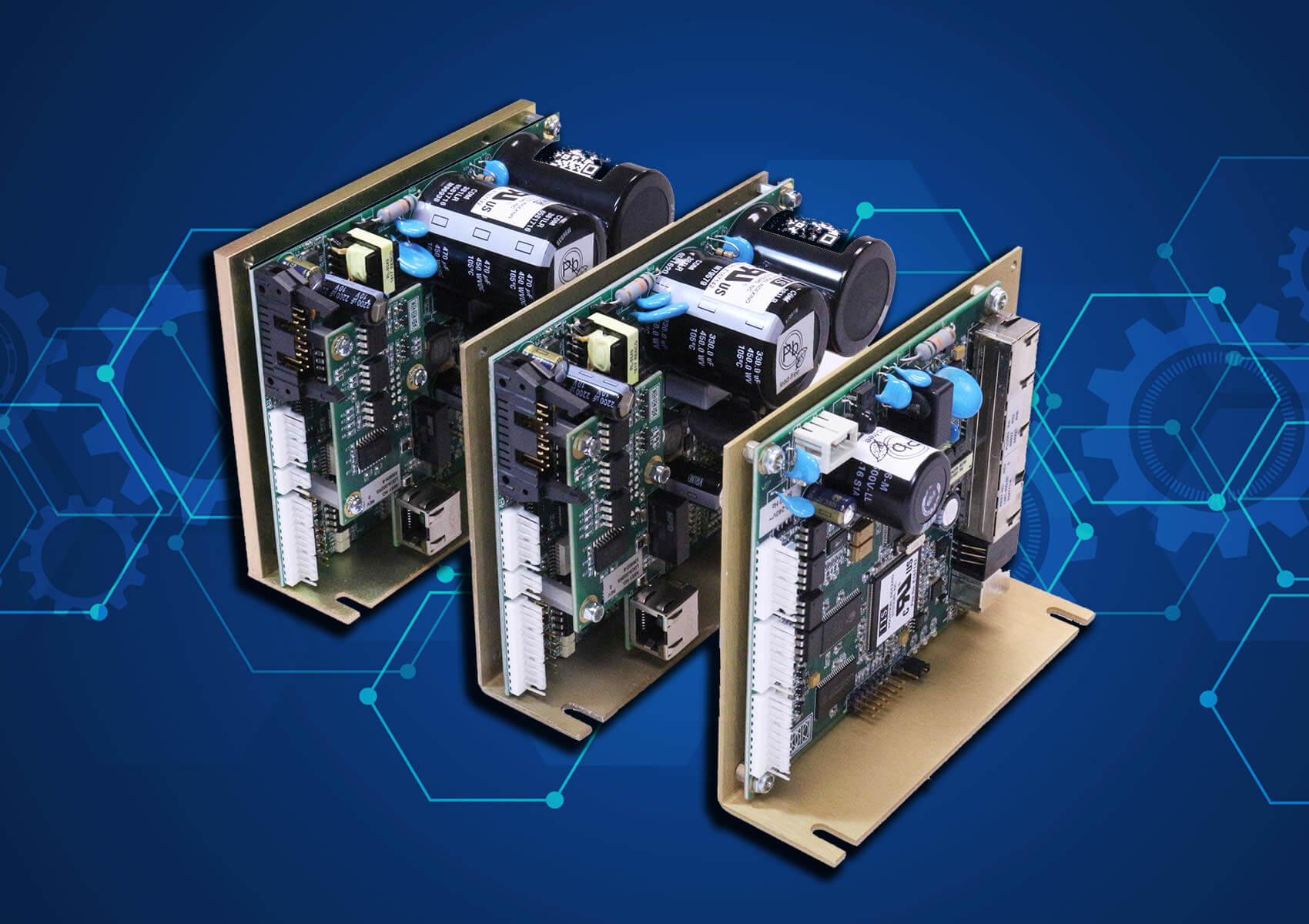Precise speed control is crucial for reliable results in a variety of motion control applications. Knowing the speed is set and regulated, within a tolerance of +/- 0.1 RPM for extended periods of time, assures consistent results in applications ranging from mixing liquids or pumping.
Luminary Servo Drives
Using servo drive technology by Industrial Indexing Systems (IIS), the Luminary Servo Drive Series is easily configured for a variety of applications using a digital drive interface option.
The digital drive interface option bypasses the normal analog circuit path to allow access to the digital registers which control the operation of the speed control loop. Using the universal RS-485 device bus with Modbus RTU as its connectivity scheme, the digital drive is reachable from a variety of HMI, PLC and PC type controllers. The RS485 multi-drive configuration permits drive networks of up to 16 units.
 Controlling Speed
Controlling Speed
The drive’s speed control loop consists of a circuit to monitor and control the motor’s torque using a speed command as the input target value. In this control loop process, the speed of the motor shaft is measured on a periodic time-base and compared to the input target value.
Any difference between the two values is applied as a correction to the torque control that is needed to accelerate or decelerate the motor shaft back to the desired speed. The shaft speed stays constant, within a small tolerance, due to the quick reaction time of the correction applied to the torque control loop.
What Causes Speed Changes
External forces that can affect the shaft speed are a result of torque on the motor shaft due to friction, inertia, and variations in fluid viscosity.
- Friction develops torque on a shaft in proportion to its speed.
- Inertia develops torque during changes in speed.
- Viscosity develops torque from an object mounted to the motor shaft as it moves through a fluid medium.
- An object’s shape and size, such as a propeller, moves through the medium acting as a moment arm developing torque.
- The amount of torque needed to keep a constant speed depends on the viscosity of fluid medium.
- Viscosity of a fluid can also vary as its temperature changes.
Best Motor Size
The size of the motor will depend on the volume of the medium, the viscosity at its lowest temperature and the speed the fluid required. If the need arises, customized motors that meet specific customer specifications are available on request.
